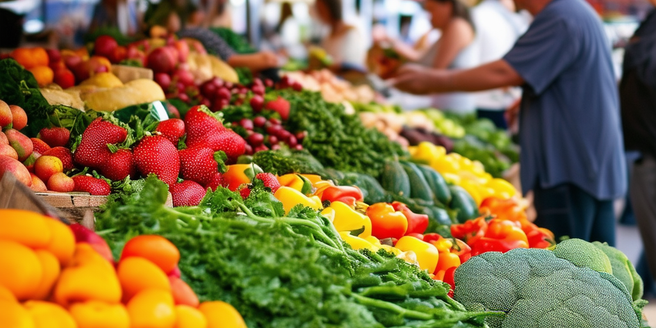Understanding the Importance of Food Security
Food security is a vital aspect of human survival, ensuring that all individuals have access to sufficient, safe, and nutritious food to maintain a healthy life. The importance of food security extends beyond just providing meals, as it impacts social stability, economic growth, and environmental sustainability. Without food security, communities face malnutrition, stunted economic development, and increased susceptibility to conflict and instability. Addressing the underlying causes of food insecurity, such as insufficient agricultural productivity, climate change, and market volatility, is essential for creating resilient societies. Investment in food security not only boosts the agricultural sector but also enhances education, health outcomes, and poverty reduction. By understanding its importance, policymakers and stakeholders can create strategic plans to address food security as a global and systemic challenge.
Innovative Technologies Enhancing Food Production
Innovative technologies are transforming the landscape of food production, helping to increase yields, improve sustainability, and address the challenges of feeding a growing global population. Precision agriculture, with the use of drones, sensors, and data analytics, is optimizing resource use and enhancing crop management. Genetic engineering and biotechnology are developing crop varieties that are more resilient to pests, diseases, and climate change. Urban farming, including vertical and hydroponic systems, is bringing food production closer to urban consumers, reducing transportation costs and greenhouse gas emissions. These technological advancements not only enhance productivity but also play a critical role in promoting environmental sustainability. Embracing these innovations is essential for achieving food security and ensuring sustainable agriculture practices for future generations.
Community-Based Approaches to Reducing Hunger
Community-based approaches to reducing hunger are essential in fostering self-reliance, resilience, and long-term sustainability. By empowering local communities, these approaches encourage collaboration, education, and the sharing of resources and knowledge. Local initiatives, such as community gardens, food cooperatives, and farmers’ markets, create direct access to nutritious food while supporting local economies. Educational programs focus on enhancing agricultural skills, nutrition awareness, and sustainable farming practices, enabling communities to efficiently utilize their resources. Additionally, these programs promote an understanding of the ecological impact of food production. Engaging local stakeholders, including government bodies, non-profits, and private sectors, fosters integrated strategies tailored to specific needs and cultural contexts. By supporting localized solutions, community-based approaches address immediate food needs while building the capacity for long-term food security.
Policy Interventions for Sustainable Agriculture
Policy interventions play a pivotal role in advancing sustainable agriculture, ensuring food security, and protecting natural resources. Governments and international organizations must develop comprehensive policies that promote sustainable farming practices, equitable access to resources, and fair trade. This can include subsidizing organic farming, investing in agricultural research, and supporting smallholder farmers with training and financial aid. Policies should also address the impacts of climate change by encouraging climate-resilient crops and sustainable water management. Additionally, establishing clear regulations to reduce food waste and improve supply chain efficiency can significantly enhance sustainability. Collaborative efforts between policymakers, farmers, and communities are vital for implementing effective strategies that align with global food security goals and environmental preservation.
Future Trends in Global Food Security Solutions
The future of global food security hinges on innovative approaches and sustainable practices that address emerging challenges. Trends such as digital agriculture, climate-smart practices, and alternative protein sources are gaining momentum. Digital tools provide farmers with vital insights for decision-making, optimizing resources, and increasing productivity. Climate-smart agriculture focuses on adaptation and mitigation to enhance resilience against environmental stressors. Furthermore, the exploration of alternative protein sources, such as plant-based and lab-grown meats, presents opportunities to diversify diets and reduce the environmental impact of traditional livestock farming. Global collaboration, investment in research, and a focus on sustainability will be crucial in ensuring future food security while meeting the nutritional needs of a burgeoning population.



